Linking Waterfowl Conservation Efforts Across Oceans

By David McNabb
Field & Game Australia, general manager
The world, as they say, is a is small place but the waterfowl world is even smaller.
It’s been a few short days since I said to farewell to Dr. Scott Petrie at Melbourne’s International Airport.
Scott arrived in Australia as a well-credentialed and respected member of the global fraternity of hunters, but I am pleased to say he departed our shores as a friend and colleague.
Scott’s visit “Down Under” to present as a keynote speaker at the Conservation through Sustainable Use of Wildlife was opportune. His perspective on the undeniable link between hunting and conservation clearly struck a chord with the many academics, government officials in the room.
For Field & Game Australia, which shares a similar rich history of wetland conservation and waterfowl hunting, it was great to shape a podium and time with someone who understands the challenges and feels the passion in the same way we do.
FGA has taken on the challenge of re-educating the broader public about the link between conservation and hunting. To do that, we have to be open about what we do and show real pride in our traditions.
Important tools for telling the real story of what we like to call “Australia’s most surprising conservationists” are our new publishing platform, and a brand and media campaign.
We are deep into long-term planning for 2020 and beyond, and before heading home, Scott generously shared in a strategic discussion with the FGA Board of Management.
We face ever-increasing opposition to hunting, especially duck hunting, yet those same anti-hunters can’t demonstrate where they have contributed an extra hectare of critical wetland habitat, or nest boxes they’ve constructed, or predators they’ve eradicated.
Scott also joined us to speak at our inaugural dinner to celebrate “Wild Food, Wine and Waterfowl,” a hugely successful event.
It is important our members understand that we face common challenges and we are not just in a battle of hunter vs. anti-hunting, we are engaged in an escalating battle for the hearts and wallets of the broader community. It is a fight that soaks up money, time and expertise that could be better spent on habitat, breeding and scientific study — but it is a fight we must remain engaged in at every level.
FGA continues to face the challenges from loss of habitat through conservation that contributes to exclusion of hunting rather than embracing the long history of practical conservation work demonstrated by hunters. We face the change in values of an increasingly urbanized society, where the links to the reality of where and how food is sourced is avoided, ignored or even vilified.
Hunter numbers are growing in Australia, which is a wonderful opportunity, but it brings other challenges, including access to land to hunt. Growth in hunting brings with it demand for access to knowledge and mentors to nurture young hunters to be ethical hunters of tomorrow.
We are greatly encouraged by the example Delta Waterfowl has set in establishing the Youth First Hunt program. We expect you won’t mind when we borrow it for the Australian setting.
Morning in a hunters’ camp demonstrates the incredible bonds that draws people together across industries and across geographies.
I have a great memory of standing with Scott in the pre-dawn gloom, waiting for the coffee pot to work its magic, gearing up and checking pockets of hunting coats to make sure a head lamp or the camera isn’t left behind.
Two people who grew up on opposite sides of the world who have so much in common when stood over a campfire with the anticipation of a hunt building.
The link between conservation and hunting is a story that’s needs to be told and re-told to an increasingly urbanized society, one where the real practical work to create more habitat and insights into our wildlife is left to a few, and the majority of conservation dollars continue to be pushed out to popular causes.
Australia is the driest continent on Earth, the reason why the vast majority of the population hugs the lush coastal fringes. In the outback (and even slightly out the back) water availability and use is a critical issue for habitat which adds to the myriad of challenges faced by FGA.
Our members are hunters but they are also conservationists — they represent the human element so often left out of the wildlife equation — wildlife, habitat, people.
Just as there is a bond between hunters, there should also be links between like-minded organizations like Delta Waterfowl and Field & Game Australia. We share a passion and a tradition, but increasingly, it is important that we share information and knowledge.
Based on the goodwill that was evident during Scott’s visit to Australia, we are determined to strengthen our relationship with Delta Waterfowl and explore mutually beneficial opportunities for duck hunters everywhere.
David McNabb is the general manager of Field & Game Australia, a premier organization devoted to conservation, hunting and clay target shooting.

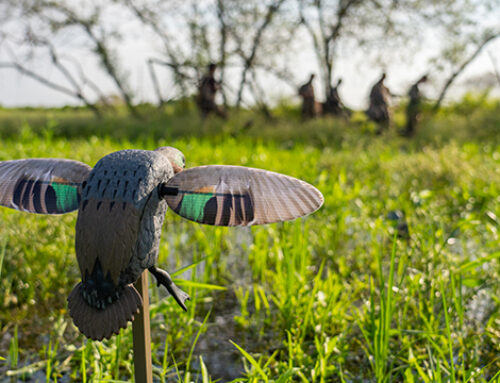
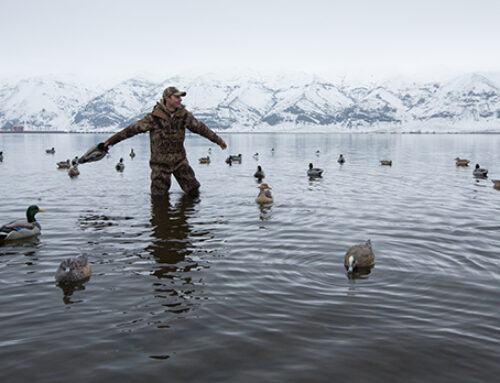
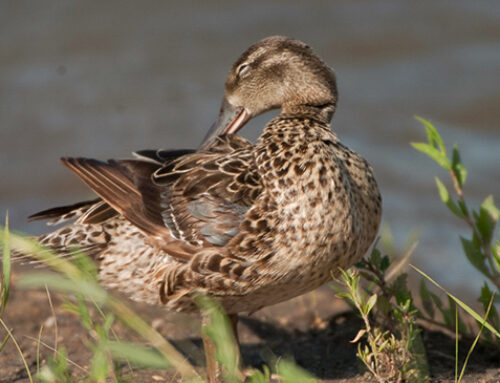
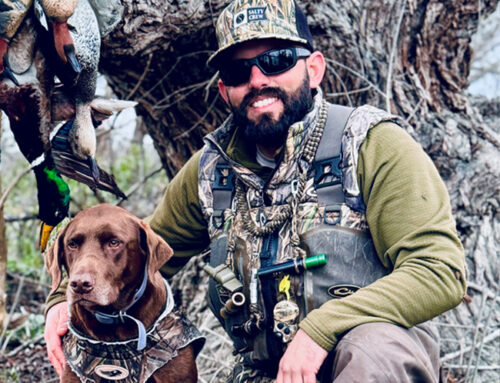
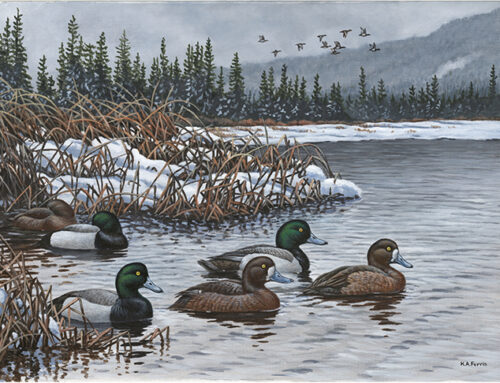
Leave A Comment